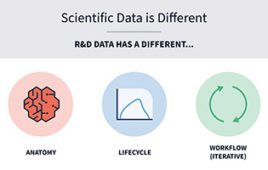Vatican, Bodleian Libraries to Digitize Ancient Texts
 |
| One of the Bodleian’s newly digitized ancient texts is a manuscript from Venice dating from 1478. A collaboration between the Bodleian and the Vatican Libraries will bring ancient texts into the digital era. 1.5 million pages from both collections will be digitized and made publicly available. |
The Biblioteca Apostolica Vaticana (BAV) and the Bodleian Libraries will embark on a new collaborative digitization project with the aim of opening up repositories of ancient texts and making a selection of their remarkable treasures freely available online to researchers and the general public worldwide.
The initiative has been made possible by a £2 million award from the Polonsky Foundation, whose founder, Dr. Leonard Polonksy, has previously supported the Bodleian’s library digitization initiatives.
Polonsky said: “21st-century technology provides the opportunity for collaborations between cultural institutions in the way they manage, disseminate and make available for research the information, knowledge and expertise they hold. I am pleased to support this exciting new project where the Bodleian Libraries and the Biblioteca Apostolica Vaticana will make important collections accessible to scholars and the general public worldwide.”
The partnership between the two institutions was recently established with help from the Bodleian’s Centre for the Study of the Book. The digitization project builds on the existing relationship between the two institutions.
Sarah Thomas, Bodley’s Librarian, said: “Transforming these ancient texts and images into digital form helps transcend the limitations of time and space, which have in the past restricted access to knowledge. Scholars will be able to interrogate these documents in fresh approaches as a result of their online availability. Today’s world (and tomorrow’s) is one of global connectedness. The Bodleian Libraries are pleased to have the opportunity to work closely with Biblioteca Apostolica Vaticana in this cross-cultural collaboration.”
The digitized collections will be in three subject areas: Greek manuscripts, 15th-century printed books (incunabula) and Hebrew manuscripts and early printed books. These areas have been chosen for the strength of the collections in both libraries and their importance for scholarship in their respective fields.
With approximately two-thirds of the material coming from the BAV and the remainder from the Bodleian, the libraries hope the digitized collections also will benefit scholars by uniting virtually materials that have been dispersed between the two collections over the centuries.
The project will span four years and will result in approximately 1.5 million pages being made available in digital format.
The Chancellor of the University of Oxford, Lord Patten of Barnes, said: ‘We are very grateful to Dr Polonsky for his insight into the importance of widening access to the fundamental texts which have had a major impact on the development of civilization. By making these collections available online we give the wider public access to a small but significant part of the world’s heritage.’
Monsignor Cesare Pasini, the Prefect of the Vatican Library, said: “Thanks to the far-sighted and generous support of the Polonsky Foundation, two of the oldest libraries in Europe will join forces in an innovative approach to digitization driven by the actual needs of scholars and scholarship. With this joint initiative, the two Libraries continue to accomplish their mission for the benefit of science and culture; it represents a great step forward in the Vatican Library’s entry into the digital age, and the Library is particularly grateful to Dr Leonard Polonsky for giving us this extraordinary impetus.”




